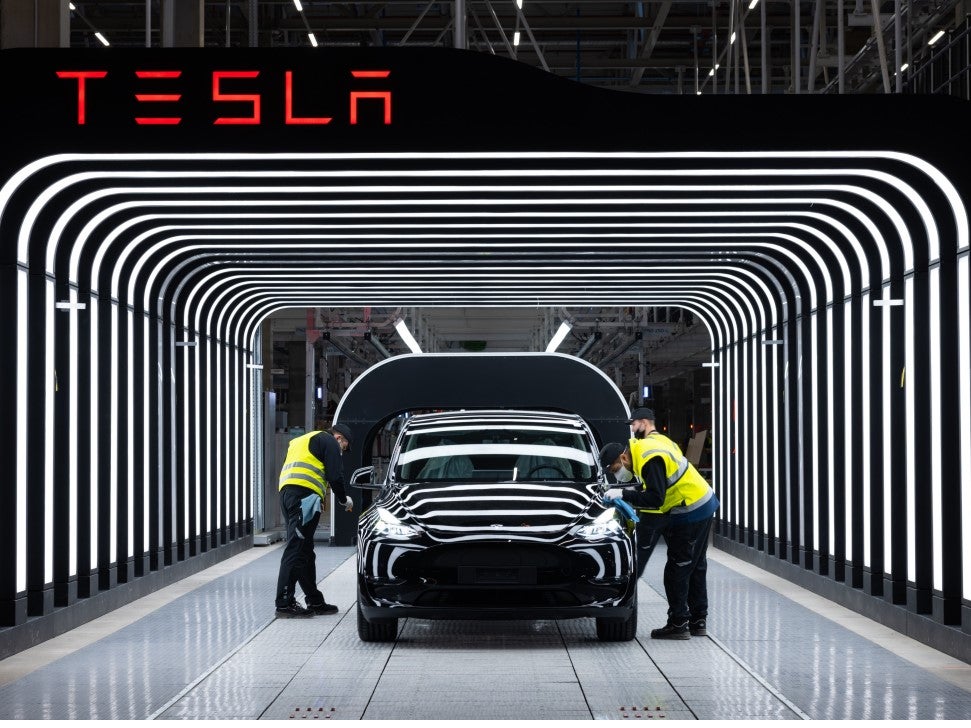
The European new car market continued to struggle in February, according to JATO Dynamics analysts.
“The geopolitical situation in Ukraine impacted the semiconductor shortage further while also affecting other aspects of the supply chain. As a consequence, many OEMs were forced to halt production, delaying the delivery of new vehicles.”

Discover B2B Marketing That Performs
Combine business intelligence and editorial excellence to reach engaged professionals across 36 leading media platforms.
According to data for 26 Europe markets, new vehicle registrations fell 5.4% year on year to 794,576 units while year to date volume decreased 3.8% to 1,607,321.
Global analyst Felipe Munoz said: “Last month’s results marked the lowest volume recorded in February for four decades. The market has historically been defined by high volumes and low margins but we’re beginning to see this shift the other way around.”
BEV drives LEV demand
In February, battery electric vehicles (BEV) accounted for 56% of all demand for low emissions vehicles (BEV, PHEV, hydrogen). Volume increased 77% to 87,400 units. In contrast, PHEV sales rose 6% to 67,400 units.
The emergence of new models and the ongoing support of incentives has had a clear impact on consumer demand for BEVs. SUVs continued to be a key driver of growth accounting for 49% of total demand across all segments.
Munoz: “Without the arrival of competitive electric SUVs, the BEV segment looked set to remain a niche market in Europe. But thanks to OEM investment in these vehicles, demand continues to grow which is helping to offset the challenges currently faced by the industry.”
SUVs accounted for 51% of BEV registrations in February, however these vehicles accounted for only 11% of total SUV registrations, indicating there remains significant potential for electrified SUVs to grow within the segment.
Tesla leads in BEVs
Tesla – which just opened its German factory – led the BEV market in February with 18.1% market share, ahead of Volkswagen Group which secured 17.6% across all brands. The VW brand was outsold by Hyundai and Kia which took second and third position respectively in the ranking by brand.
Tesla results were explained by the continued popularity of the Model 3, the top-selling BEV in February, in addition to the success of the Model Y which secured second position in the BEV ranking by model. The Model 3 was the most popular BEV in Spain, France and Germany, while the Model Y led in Austria, Belgium, Switzerland, Denmark and the UK.
Munoz : “Tesla’s February results suggest that we could well see new monthly records for the brand in March.”
Golf back on top
In the general model ranking the VW Golf regained the top position with more than 15,000 units, down 6%. Within the top 10, only the Peugeot 3008 and Hyundai Tucson saw growth in February.
The Toyota Yaris Cross, Tesla Model 3, Mini Hatch, Opel/Vauxhall Mokka, Hyundai Kona, Kia Sportage, Tesla Model Y and Citroen C4 also posted strong results. Among the latest launches, the Renault Arkana was the third best-selling Renault; the Hyundai Ioniq 5 outsold the VW ID.4 and Skoda Enyaq. VW registered 3,000 units of the Taigo while Kia registered 2,000 of the EV6.






